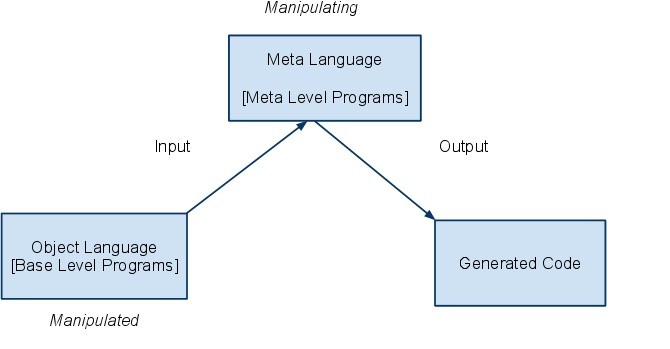CSC/ECE 517 Fall 2010/ch2 S24 rm
"I'd rather write programs that write programs than write programs" - Richard Sites
Introduction
Most metaprogramming is done in dynamic languages, like Ruby. Achieving metaprogramming in static languages directly, becomes complex due to its inherent nature of compile time abstraction verification. However, there are tools and packages for support of metaprogramming in statically typed languages, such as Java that can be leveraged to achieve metaprogramming features.
Metaprogramming
Metaprogramming is a programming technique of writing computer programs that write or manipulate other programs or themselves. In other words, it is a programming technique of writing programs with a higher level of abstraction to make it appear as generative programming.
Metaprogramming involves two kinds of languages. The meta-language is the language in which meta-programs, which construct or manipulate other programs, are written. The object-language is the language of programs being manipulated. This makes them ‘meta level programs’ whose problem domain are other ‘base level programs’.[1]
The ability of a programming language to be its own metalanguage is called reflection or reflexivity.
Simple example of a metaprogram: Let us consider a totally fabricated example for our understanding at very high level. Suppose we need to write a C program that printed the following 500 lines of text with a restriction that the program could not use any kind of loop or goto instruction.
require 'tk'
msg = TkRoot.new {title “Hello World!”}
Tk.mainloop
